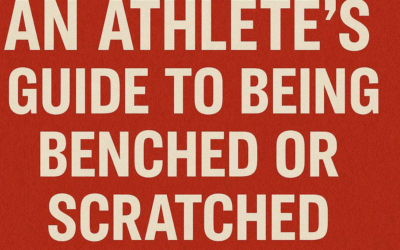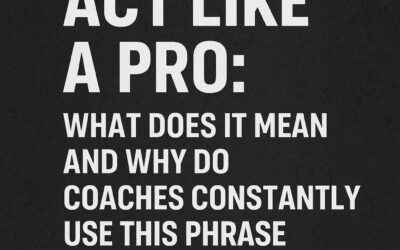|
Tryouts are one of the most mentally intense parts of being an athlete. Your skills, preparation, and mindset are on display and every decision, movement, and moment of focus counts. While talent and training matter, your mental performance can be the difference between blending in and standing out. Here’s the truth: the athletes who thrive in tryouts are not necessarily the most gifted, but the ones who avoid the mental traps that sabotage performance. Below are the Top 10 Things to Avoid during tryouts—and exactly how you can approach them like a high-performance athlete. ___________________________
1) Overthinking Your Performance: What to Avoid: Getting stuck in your head, second-guessing your technique, or analyzing every mistake. What to Do Instead: Trust your training. Let muscle memory work for you. Focus on playing instinctively, not perfectly.
2) Fear of Failure: What to Avoid: Playing scared or holding back because you’re worried about making mistakes. What to Do Instead: Go all in. Play with energy and intent. Coaches respect effort and courage more than playing safe
3) Negative Self-Talk: What to Avoid: Phrases like “I’m not good enough” or “I can’t hit that shot.” What to Do Instead: Replace them with confident, short statements like “I’m ready for this” or “Next play.” These reset your mindset instantly.
4) Comparing Yourself to Others: What to Avoid: Worrying about what other athletes are doing, how they look, or what they’re good at. What to Do Instead: Focus on your own strengths, execution, and role. Your job is to compete as your best self, not as someone else.
5) Focusing Only on the Outcome: What to Avoid: Obsessing over whether you’ll make the team. What to Do Instead: Keep your attention on controllables—your effort, attitude, and execution—so your performance stays consistent.
6) Lack of Mental Preparation: What to Avoid: Showing up physically ready but mentally unprepared. What to Do Instead: Use visualization, breathing, and a pre-game routine to get yourself focused and calm before stepping on the field, ice, or court.
7) Letting Stress Take Over What to Avoid: Letting nerves speed up your body and slow down your mind. What to Do Instead: Use deep breaths, progressive muscle relaxation, or mindfulness cues to bring your system back under control.
8) Losing Focus: What to Avoid: Drifting mentally, letting distractions or mistakes pull you off your game. What to Do Instead: Have a “reset cue” (like a breath, clap, or word) to bring yourself back into the moment quickly.
9) Setting Unrealistic Expectations: What to Avoid: Demanding perfection from yourself on every play. What to Do Instead: Aim for consistent execution. Coaches notice athletes who are reliable and composed under pressure.
10) Skipping Your Routine: What to Avoid: Rushing through your warm-up or skipping your normal preparation. What to Do Instead: Stick to your physical and mental routines. This helps you feel grounded, ready, and connected to your game plan. ___________________________
Why This Matters for Mental Performance & Mental HealthWhen you avoid these traps, you reduce unnecessary mental load, lower performance anxiety, and give yourself space to compete at your best. Confidence is built when you prepare, trust your process, and show up fully present. This doesn’t just improve your game—it protects your mental wellbeing, too. ___________________________ Actionable Tips for Your Next Tryout
___________________________
Self-Reflective Question:When the pressure is high, do you trust your training and compete with courage—or do you play not to lose? |
|
|
|




